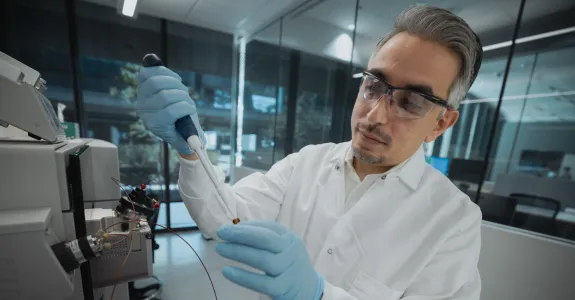
Dr. Monther Abu-Remaileh's lab is interested in identifying novel pathways that enable cellular and organismal adaptation to metabolic stress and changes in environmental conditions. The lab also studies how these pathways go awry in human diseases such as cancer, neurodegeneration and metabolic syndrome, in order to engineer new therapeutic modalities.
To address these questions, the Abu-Remaileh lab uses a multidisciplinary approach to study the biochemical functions of the lysosome in vitro and in vivo. Lysosomes are membrane-bound compartments that degrade macromolecules and clear damaged organelles to enable cellular adaptation to various metabolic states. Lysosomal function is critical for organismal homeostasis—mutations in genes encoding lysosomal proteins cause severe human disorders known as lysosomal storage diseases, and lysosome dysfunction is implicated in age-associated diseases including cancer, neurodegeneration and metabolic syndrome.
By developing novel tools and harnessing the power of metabolomics, proteomics and functional genomics, the lab will define:
- how the lysosome communicates with other cellular compartments to fulfill the metabolic demands of the cell under various metabolic states
- how its dysfunction leads to rare and common human diseases
Using insights from their research, the Abu-Remaileh lab will engineer novel therapies to modulate the pathways that govern human disease.






